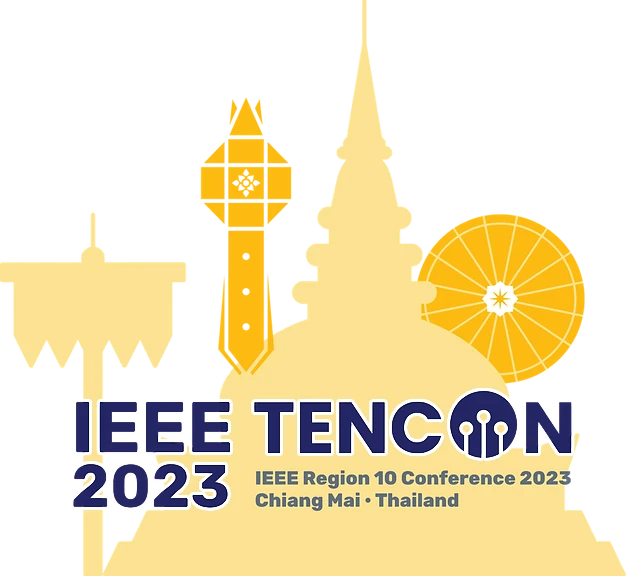
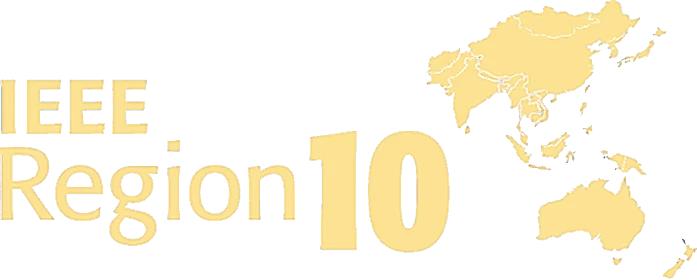 2023 IEEE Region 10 Conference (TENCON)
Engineering Tomorrow: The Sustainability-driven Innovation for Post Outbreak Era
31 October - 3 November, 2023 | Lè Meridien Hotel, Chiang Mai, Thailand
2023 IEEE Region 10 Conference (TENCON)
Engineering Tomorrow: The Sustainability-driven Innovation for Post Outbreak Era
31 October - 3 November, 2023 | Lè Meridien Hotel, Chiang Mai, Thailand

 2023 IEEE Region 10 Conference (TENCON)
Engineering Tomorrow: The Sustainability-driven Innovation for Post Outbreak Era
31 October - 3 November, 2023 | Lè Meridien Hotel, Chiang Mai, Thailand
2023 IEEE Region 10 Conference (TENCON)
Engineering Tomorrow: The Sustainability-driven Innovation for Post Outbreak Era
31 October - 3 November, 2023 | Lè Meridien Hotel, Chiang Mai, Thailand
|
Keynote Lectures |
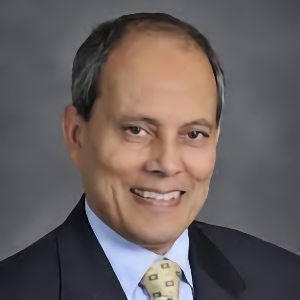
| ||||
|
Abstract: There is an unprecedented level of awareness of climate change and the role of decarbonization in enabling environmental sustainability moving forward. In particular, there has been a major focus placed on the carbon produced through electricity generation, as it is responsible for roughly 30% of emissions globally. While industrialized nations are slowly moving away from fossil-fuel based electricity, emerging economies are still heavily reliant on fossil fuels which are the most readily available electricity generation sources for them. Thus, there is a tension that needs to be navigated if we are to meet carbon reduction targets – and they are, to be clear, shared targets. A nuanced approach to navigating this tension will see industrialized nation states collaborating with emerging economies to deploy a portfolio of solutions with low-carbon generation (including renewables and nuclear), storage and demand side management with advanced technology focusing on energy efficiency. Biosketch: Professor Saifur Rahman is the founding director of the Advanced Research Institute (www.ari.vt.edu) at Virginia Tech, USA where he is the Joseph R. Loring professor of electrical and computer engineering. He also directs the Center for Energy and the Global Environment (www.ceage.vt.edu). He is a Life Fellow of the IEEE and an IEEE Millennium Medal winner. He was the president of the IEEE Power and Energy Society (PES) for 2018 and 2019. He was the founding editor-in-chief of the IEEE Electrification Magazine and the IEEE Transactions on Sustainable Energy. He has published over 140 journal papers and has made over four hundred conference and invited presentations. In 2006 he served on the IEEE Board of Directors as the vice president for publications. He is a distinguished lecturer for the IEEE Power & Energy Society and has lectured on renewable energy, energy efficiency, smart grid, energy internet, blockchain, IoT sensor integration, etc. in over 30 countries. He is the founder of BEM Controls, LLC, a Virginia (USA)-based software company providing building energy management solutions. He served as the chair of the US National Science Foundation Advisory Committee for International Science and Engineering from 2010 to 2013. He has conducted several energy efficiency, blockchain and sensor integration projects for Duke Energy, Tokyo Electric Power Company, the US National Science Foundation, the US Department of Defense, the US Department of Energy and the State of Virginia. | ||||
|
| ||||
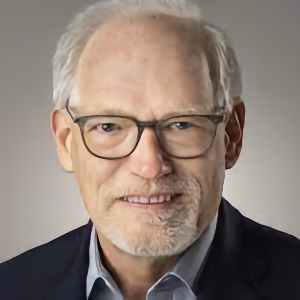
| ||||
|
Abstract: Tom Coughlin, President Elect of the IEEE and President of Coughlin Associates will talk about developments in data storage and memory and interconnect technology that will enable the growth of data intensive applications such as AI training and inference, big data analysis and the effective use of IoT. These include developments in the digital storage technologies themselves as well as new storage and memory interconnects and protocols that will revolutionize computing architectures. In addition, as IEEE President Elect, he will talk about his vision for the future of the IEEE. Biosketch: Tom Coughlin, President, Coughlin Associates is a digital storage analyst and business/ technology consultant. He has over 40 years in the data storage industry with engineering and senior management positions. Coughlin Associates consults, publishes books and market and technology reports and puts on digital storage-oriented events. He is a regular contributor for forbes.com and M&E organization websites. He is an IEEE Fellow, 2023 IEEE President Elect, Past-President IEEE-USA, Past Director IEEE Region 6 and Past Chair Santa Clara Valley IEEE Section, and is also active with SNIA and SMPTE. For more information on Tom Coughlin go to www.tomcoughlin.com. | ||||
|
| ||||
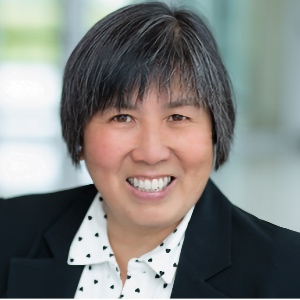
| ||||
|
Abstract: Academic Research is the foundation of innovation and its commercialization benefits humanity for a sustainable tomorrow. Creating a company from your research can be a taunting yet rewarding endeavor. There are many parallels between a research lab and a startup. The pathways to get from academic discovery to a business have many twists and turns. And is quite achievable with help from many sources. Finding success as a researcher and as an entrepreneur is possible either doing both or separately at the same time. As well demonstrated with the race to find the COVID-19 vaccine. The avenues are there, which direction will you take? Biosketch: Joanne is the Chair of IEEE Entrepreneurship (2022 to 2023), Connecting tech entrepreneurs to an engineering-driven global Innovation network. IEEE Entrepreneurship is developing and providing startup resources for academic researchers and tech entrepreneurs. She was Member at Large and Vice Chair, Industry & Investor Activities of IEEE Entrepreneurship. She was Secretary, IEEE TEMS Executive Committee and Board of Governors (2019 to 2021). Joanne is General Partner of REDDS Capital, a Californian based VC firm investing in global early-stage IT startups. She has worked with IBM, HP, SAP, and Cisco in multiple technical, market development, and strategic investments positions. Joanne was the Executive Director of a healthcare charity start-up, providing free green access to high performance computational resources for biomedical researchers. She was a co-founder of two startups, one was in the use of 3D simulation for learning and the other was a multi-modal data management platform for longitudinal clinical studies. She is a mentor/advisor for multiple startups. Joanne has served on several boards including the Government of Canada ICT sector council setting research and advising ICT policy for the country. | ||||
|
| ||||
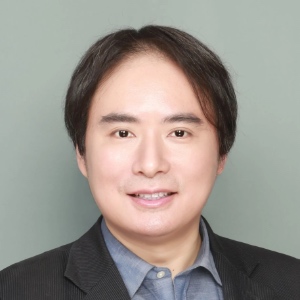
| ||||
|
Abstract: We are currently between two stages of Digital Transformation: the exploding Intelligentization and the upcoming Realitization (Metaverse). AI is transforming forces of production and relations of production, while Metaverse will redefine production and redefine life. Blockchain will play an increasingly important role in this transformation as a key element of the global infrastructure. As a leading consensus-building organization, IEEE Standards Association (IEEE SA) is paving the road to the new era of digital economy and digital reality. Biosketch: Dr. Yu Yuan is a visionary researcher, inventor, practitioner, and entrepreneur in the areas of Consumer Technology, Multimedia/VR/AR, Connected/Automated Vehicles, IoT, and Digital Transformation. He founded 0xSenses Corporation, a multinational technology company specializing in Virtual Reality. Dedicated to "Creating Better Worlds" as its long-term vision, the company is developing technologies, infrastructures, ecosystems, and resources needed for massively multiplayer ultra-realistic virtual experiences. Prior to this he worked for IBM Research as a research scientist and was a key contributor to IBM's Cell Broadband Engine, Smarter Planet, and IoT initiative. He has been a passionate volunteer in various leadership positions at IEEE and other professional communities. His outstanding service in IEEE standards activities at different levels (working groups, standards committees, and governance at higher levels) has been widely appreciated by standards developers, individual members, and corporate members. He has a Ph.D., an M.S., and a B.S. in Computer Science from Tsinghua University. | ||||
|
| ||||
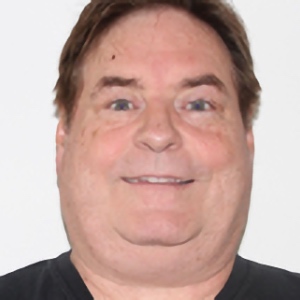
| ||||
|
Abstract: Climate change is the defining problem of our time and an existential threat to humanity. A key goal of the climate and weather community is to provide the best possible predictions to policy makers, but long-term prediction is inherently challenging to get right, and uncertainties can limit action to fight climate change. Current estimates are that the required traditional computational capabilities will not be feasible before 2060 at the earliest – and we can’t wait that long. Artificial Intelligence however gives us a new and powerful method to substantially accelerate time to solution with recent advances in machine learning. In this talk, we will discuss various applications for AI/ML in Climate and weather modelling and present the latest breakthrough work in data-driven forecasting. Biosketch: Jeff is a HPC specialist with over 30 years of experience in developing and optimising scientific codes and architecting HPC solutions. Jeff’s primary area of expertise is in Weather & Ocean modelling, having previously worked at the New Zealand Oceanographic Institute (now NIWA), Toyota Motor Corporation, and on FEA/CFD analysis for America’s cup class yachts for Team New Zealand. Prior to joining NVIDIA, Jeff spent 16 years working at SGI on designing and deploying several operational Weather centres across the Asia Pacific region. Jeff leads the Earth Systems Science research team for the NVIDIA AI Technology Centre’s joint laboratory established at Nanyang Technological University (NTU) in Singapore. There he works on collaborations with academia and industry partners in the fields of accelerated Climate/Weather research and in the application of AI to Earth Systems Modelling. Jeff holds a Postgraduate Diploma in Computer Science from the University of Auckland, and is currently a PhD candidate at the University of Newcastle on Tyne. | ||||
|
| ||||
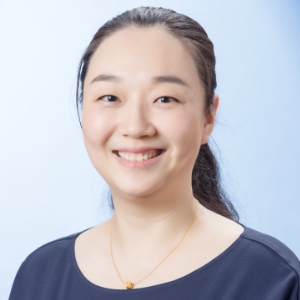
| ||||
|
Abstract: With the increasing demand for AI-enabled technologies, the fashion of AI-generated contents has garnered increasing attention and is leading a paradigm shift in content creation and knowledge representation. Despite the recent significant progress in AIGC, security, privacy, ethical and legal challenges still need to be addressed. This talk will focus on security and privacy threats, state-of-the-art solutions and future challenges of the AIGC paradigm, especially for visual information. The latest news, opportunities as well as responses regarding enabling or leveraging technologies and engineering expertise in support of Sustainable Development from IEEE HTB will also be delivered shortly in this talk.
Biosketch:
Jing Dong (Senior Member, IEEE) received the Ph.D. degree in pattern recognition from the Institute of Automation, Chinese Academy of Sciences, in 2010. Then she joined the National Laboratory of Pattern Recognition (NLPR), Chinese Academy of Sciences, where she is currently a Full Professor/Researcher in NLPR. Her research interests include artificial intelligence, pattern recognition, image processing, and digital forensics, she has published more than 80 academic papers and owns 30+ innovation patents. She has volunteered in many international and national technical societies especially for IEEE, she was the IEEE R10 ExCom member from the year of 2011 and was the R10 WIE Committee Chair (2017-2018), the R10 HTA Committee Chair (2019-2022), the R10 A&R Committee Chair (2023), the IEEE MGA HTB member (2023) and IEEE Signal Processing Society Membership Development Chair (2022-2024). She also served as IAPR P&P Committee member and the Editor in Chief for IAPR | ||||
|
| ||||
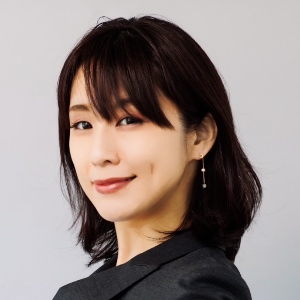
| ||||
|
Abstract: Everyone knows that earthquakes, among other natural disasters, have a serious impact on life and property. And in Japan, where earthquakes occur frequently, buildings are sturdily constructed, but in regions where earthquakes are rare, even small earthquakes can cause tremendous damage. Can the same be said for cardiac disease risk? Traditionally, it has been reported that patients with high arrhythmia have a higher mortality risk. But what about mortality in people with fewer arrhythmias? In this lecture, we will get closer to the truth about human arrhythmia risk using big data. Through this talk, we will share our understanding of the impact on heart health and the importance of heart disease prevention. Biosketch: Assoc. Prof. Emi Yuda, DEng, PhD. Born in Tokyo, D.Eng. from Niigata University, Japan. Assistant professor at school of Engineering, Tohoku University, and now associate professor at the Graduate School of Information Science and Technology, Tohoku University. Specialize in bio-signal processing and bio-medical big data analysis. PI in Dynamic biological information & application laboratory, various researcher in our fields, such as health informatics, affective engineering, and ergonomics. | ||||
|
| ||||

| ||||
|
Abstract: In a rapidly changing world, universities find themselves at the epicenter of a profound disruption. The traditional higher education model is facing unprecedented challenges, from shifting student expectations to the demands of a dynamic workforce. By focusing on the case of Chulalongkorn University as an example, I will explore the critical role of educational technology and innovation in addressing these challenges from the stakeholders’ viewpoints. The key results imply that universities must adapt, collaborate, and embrace a future that is as disruptive as it is promising. Biosketch: Professor Dr. Parichart graduated Bachelor’s Degree from Faculty of Arts at Chulanlongkorn University and finished her Master’s Degree in Faculty of Communication Art at the same university. She completed her Ph.D in International Development Communication from Ohio University, USA and continued her fellowship in Harvard-Yenching at Harvard University, USA in 2007. Presently, she works at Chulalongkorn University as a Vice President of Academic Affairs and Social Outreach, in which she is also is a Board of Director in Thai Post, Thai State Enterprise, Board of Director in National Reform Commission, Thai Government as well as a Director for Dr. Kasem Utthanin Foundation and a Director in Panjapat Co.,Ltd. As for her previous position, she was an Independent Board of Director for MCOT Public Company Limited, Thailand. In 2023, the Thailand government has bestowed Professor Dr. Parichart as an Advisory Vice Chair of Minister of Commerce. | ||||